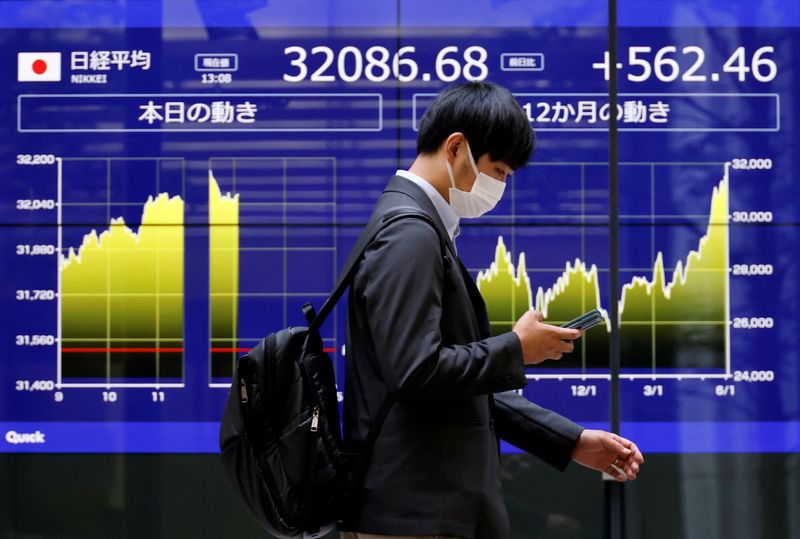By Sinéad Carew
NEW YORK (Reuters) -MSCI's global stock index rose on Thursday, recouping some losses from the previous session's late-session sell-off, while oil prices fell and the dollar hit its lowest point in a week on the eve of a key U.S. inflation reading.
Oil prices, which rallied earlier in the week due to concerns about shipping disruption in the Red Sea, fell after Angola announced it is leaving the Organization of the Petroleum Exporting Countries (OPEC).
On Wednesday, Wall Street suffered its biggest drop since September, and analysts cited hedging activity associated with trading in short-dated options.
"Today's market is trying to recover. This has been the hallmark of the latest phase in the market," said Quincy Krosby, chief global strategist, LPL Financial in Charlotte, NC.
"We've seen the fear of missing out has been powerful. We've institutional money managers who have to catch up if they've been behind competitors."
Investors also reacted positively to Thursday's data which showed third-quarter U.S. economic growth was not as robust as originally stated. Cracks were also appearing in the tight labor market, which the Federal Reserve considers an obstacle to cooling inflation.
"The fact that the third-quarter GDP number wasn't revised upward, and in fact was cut, is giving investors comfort that the path the Fed is on, which they enunciated last week, isn't going change any time soon," said Peter Tuz, president of Chase Investment Counsel in Charlottesville, Virginia.
Also, investors were keenly awaiting the Personal Consumption Expenditure (PCE) index report due out on Friday, and appeared to be betting it would confirm easing inflation.
If expectations are for a faster decline in inflation than economists have forecast "perhaps you'd want to come in today rather than wait until tomorrow," LPL's Krosby said.
After Wednesday's sell-off, traders were cautious heading into the market close. Joe Mazzola, director of trading services education at Schwab said it was important for the S&P to stay above Wednesday's lows as it could bode "well for the end of the week, heading into next week."
All three U.S. indexes gained steam to hit session highs late in the trading day.
On Wall Street, the Dow Jones Industrial Average closed up 322.35 points, or 0.87%, to 37,404.35. The S&P 500 gained 48.4 points, or 1.03%, to 4,746.75 while the Nasdaq Composite added 185.92 points, or 1.26%, to end the session at 14,963.87.
While the pan-European STOXX 600 index had closed down 0.21% earlier in the day, MSCI's gauge of stocks across the globe gained 0.72%.
The U.S. dollar eased to its lowest point since Dec. 14 against a basket of currencies as the previous session's lift for the U.S. currency faded and traders waited for the U.S. inflation figures and for clues on future Fed policy.
{{2126|The dodollar index fell 0.605%, with the euro up 0.59% to $1.1003.
The Japanese yen strengthened 0.95% versus the greenback at 142.23 per dollar, while Sterling was last trading at $1.2686, up 0.39% on the day.
In U.S. Treasuries, benchmark 10-year notes were up 1.5 basis points to 3.892%, from 3.877% late on Wednesday.
The 30-year bond was last up 2.9 basis points to yield 4.0344%, from 4.005%. The 2-year note was last was down 1.5 basis points to yield 4.3537%, from 4.369%.
Oil futures settled lower as Angola's move raised questions about OPEC's efforts to support prices by limiting global supplies.
U.S. crude settled down 0.44% at $73.89 per barrel and Brent finished at $79.39, down 0.39% on the day.

Gold prices gained after U.S. economic data fueled expectations for the Federal Reserve to cut interest rates in March next year.
Spot gold added 0.7% to $2,044.30 an ounce. U.S. gold futures gained 0.49% to $2,044.50 an ounce.
